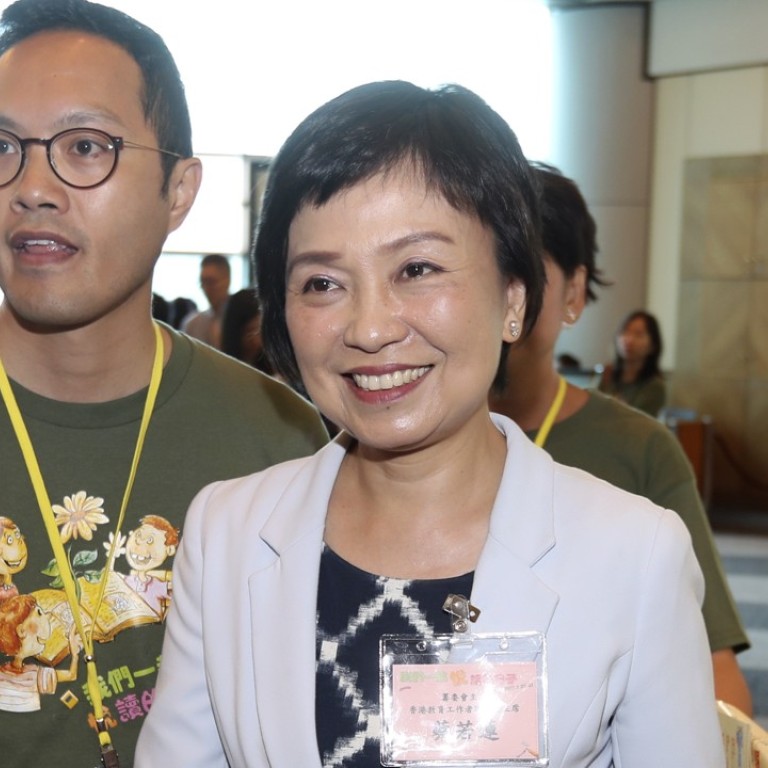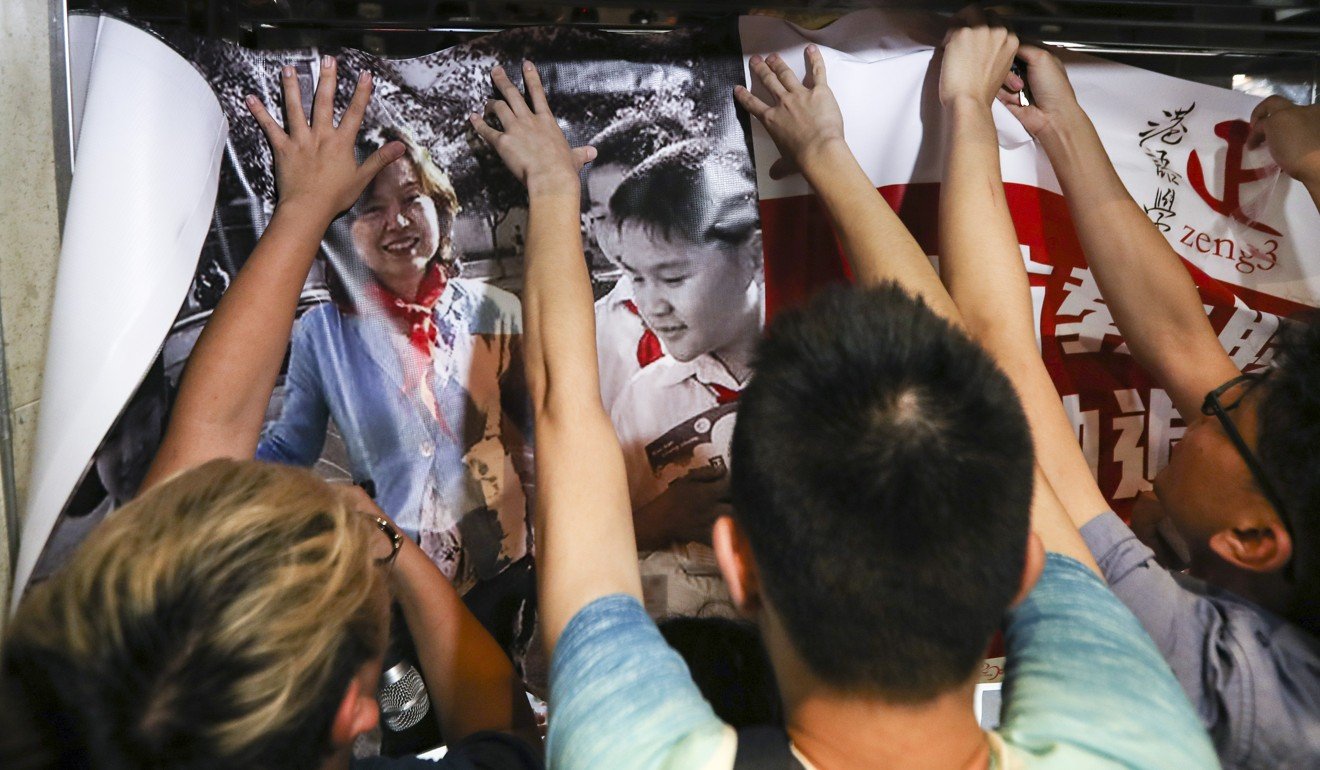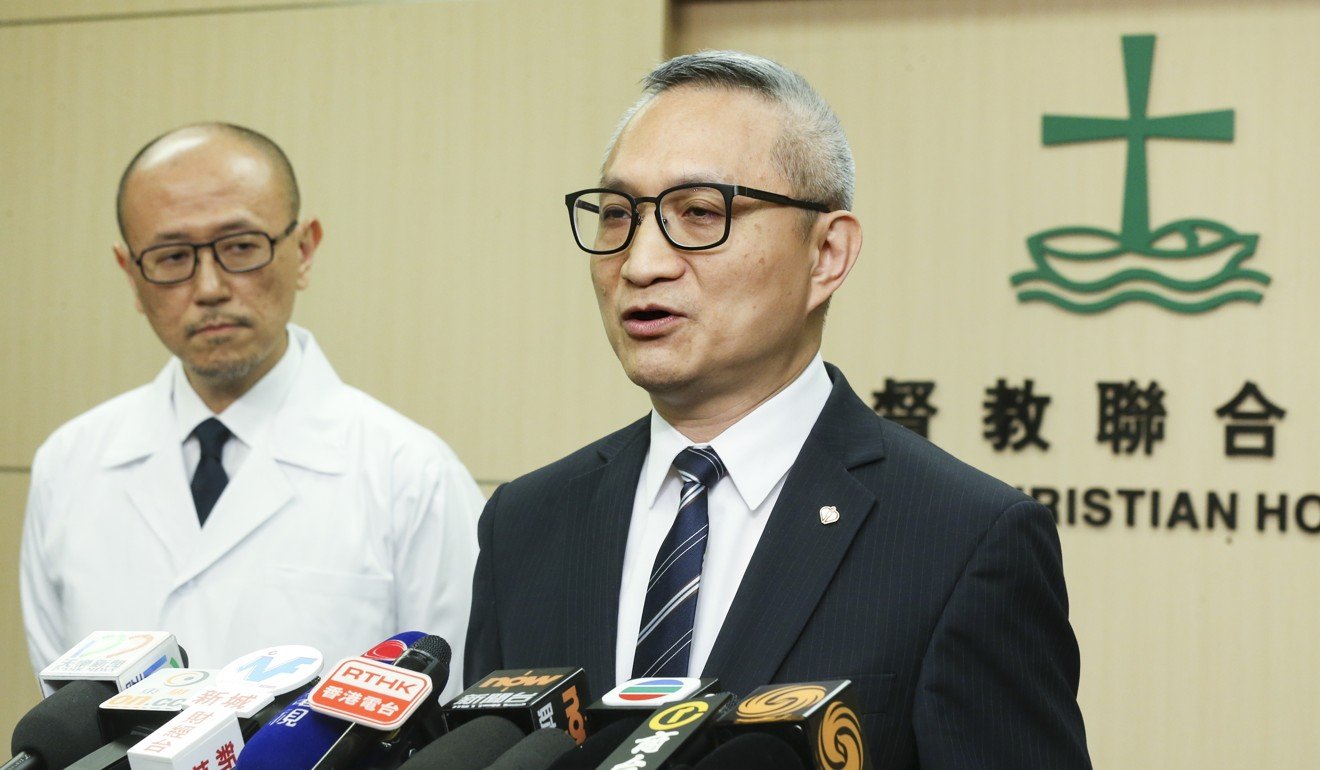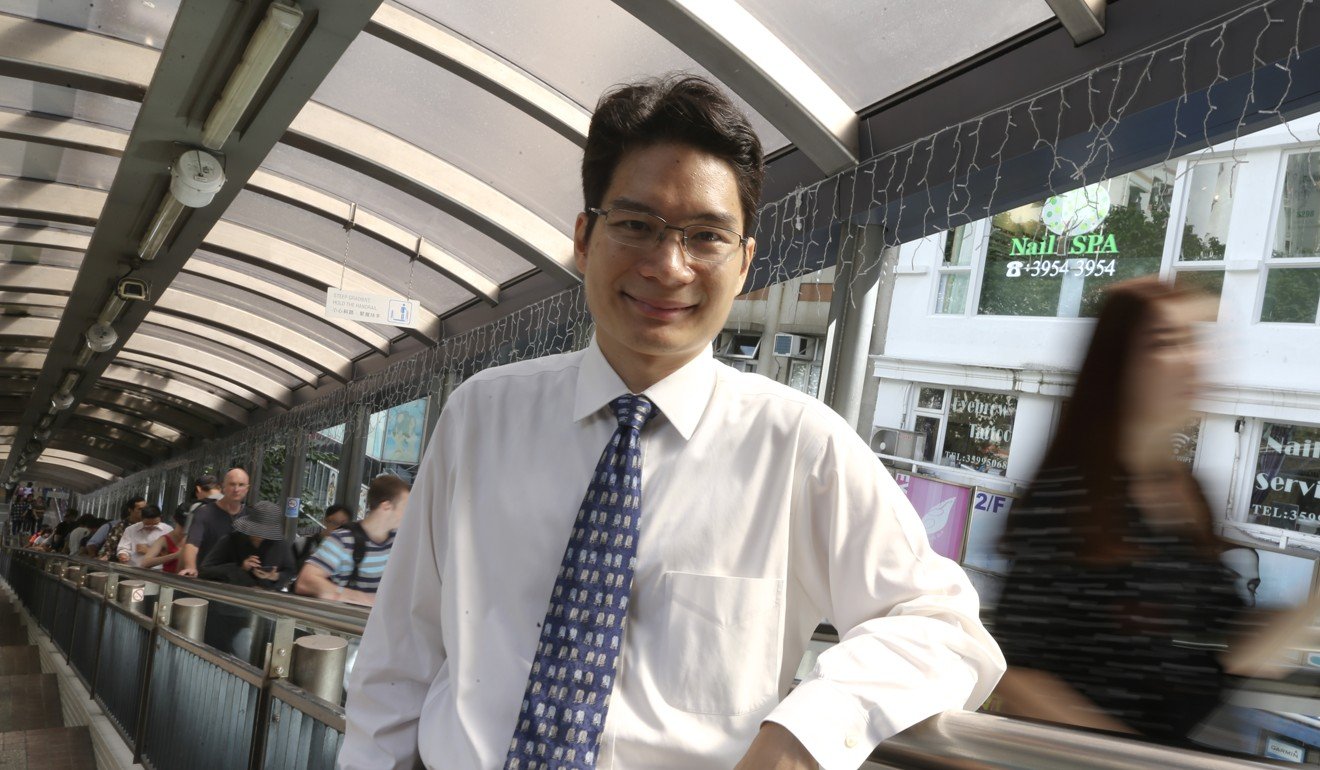
Pro-Beijing school principal named Hong Kong’s new education undersecretary despite national education fears
Christine Choi becomes deputy at Education Bureau, as government unveils political appointees to serve government ministers
Hong Kong’s new leader on Tuesday named 18 politically appointed officials to form a second tier of administrators under her ministers, including a controversial pick for the Education Bureau who could be a lightning rod for conflict between the government and opposition politicians.
Chief Executive Carrie Lam Cheng Yuet-ngor pushed ahead with the appointment of school principal Christine Choi Yuk-lin as the new undersecretary for education, despite strong opposition from those who are suspicious of her pro-Beijing credentials.
Pan-democratic politicians blasted Lam for dismissing their concerns about Choi, whose name was among a list of 10 undersecretaries and eight political assistants unveiled on Tuesday.
Four of them hailed from pro-establishment parties: two from the Democratic Alliance for the Betterment and Progress of Hong Kong, a strong backer of Lam’s election campaign in March, while the other two were from the Liberal Party.

The line-up also marked the first time that senior police officers filled the top three positions at the Security Bureau.
“Recruiting talent on merit is the guiding principle for forming my governing team,” Lam said.
“The newly appointed [officials] agree with my manifesto and share my philosophy of governance.”
Opponents of Choi’s appointment had launched a month-long campaign against her since she was tipped for the post, fearing she could end up spearheading a revived drive to introduce national education, which makes them nervous about “brainwashing” in schools.
In 2012, the government was forced to shelve plans for such a curriculum, aimed at instilling patriotism and strengthening Chinese identity, in local schools after 10 days of protests.
Education lawmaker Ip Kin-yuen recalled that when Choi ran against him in the Legislative Council elections last September, she garnered only 28.3 per cent of the vote.

“This shows the education sector does not accept or agree with her,” Ip said.
The Hong Kong Federation of Education Workers, of which Choi was previously the vice-chairwoman, welcomed the appointment, saying it “reflected the principle of meritocracy” and fulfilled the “political ethics” for officials to “love the country and Hong Kong”.
Choi was previously in charge of the school-based curriculum development at the Education Bureau before becoming the principal of the conservative Fukien Secondary School (Siu Sai Wan).
She told the Post that she would take on the job with “equanimity”, and urged critics to give her “time and space”.

The ages of the 18 second-tier officials range from 28 to 60 years. Only six are women. The youngest appointee is Lillian Cheong Man-lei. The 28-year-old political assistant at the Innovation and Technology Bureau has no relevant background and lost in the last district council elections.
Cheong was endorsed by pro-establishment heavyweight Rita Fan Hsu Lai-tai, though she claimed to be independent.
Senior bureaucrats Andy Chan Shui-fu and Liu Chun-san also quit their positions in the civil service to become new second-tier officials.
Political scientist Dr Ma Ngok of Chinese University said it was unwise for Lam to appoint Choi in particular as she was bound to face immense difficulties in promoting any policies.
He also said the line-up had failed the original intent of the accountability system, which sought to recruit the best talent from outside the government.
“I do not see anyone from the line-up as really the elite in their sector with extensive contacts,” he said.


